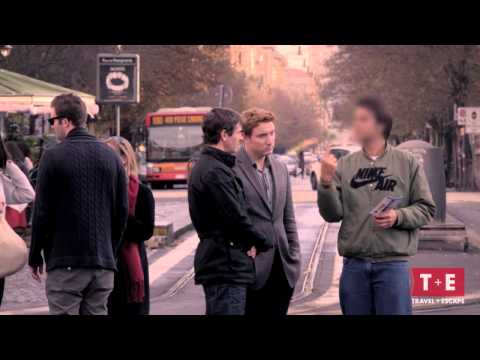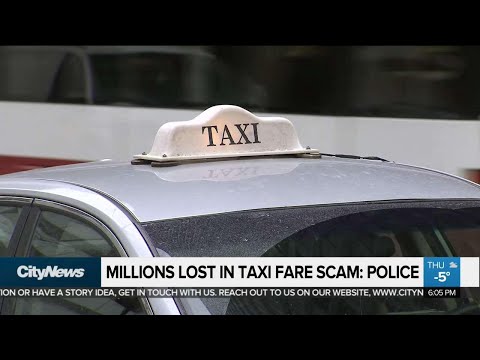They spot a good deal or assume good intentions, thinking that it’s just what they need to make their trip special. Suddenly, they find themselves in a subpar hotel, tipping for something they thought was free, the victim of theft, or left high and dry, money taken with no results. Now, we could blame it all on the tourist—they should know where they’re going and the possible pitfalls of going there, right? They should know not to trust random strangers. But we call it a case of comparative negligence. Yes, it’s the tourist’s fault for not doing their research, but it’s also the scammer’s fault for being a jerk, over and over again. So if you plan on traveling anywhere anytime soon as a self-identified tourist, be sure to avoid these ten common scams that tourists fall for. Just a note that there are some really good city-specific ones out there, but these are the ones you’re most likely to run into.
10 Terrible Tours
We start this list off light, with a common scheme that is easy to fall for. It’s not uncommon to sign up for a tour only to be dropped off and abandoned at a random place, for the tour bus to not show up at all, or for the tour to be awful in general. Make sure you are only booking tours and hiring personal tour guides from reputable companies.
9 Money Changing/Currency Short-Changing
Money changing in itself isn’t something to be suspicious about—it’s a simple currency exchange. But, if you’re traveling to a different country, aren’t familiar with the currency, or look like you aren’t familiar with the currency, an unscrupulous shopkeeper, or whoever, may try to pull a fast one on you by giving you the incorrect change on purpose. This could also happen at foreign exchange booths where they will quickly swap similar bills (a higher one for a lesser one). Before you leave any shop, booth, or restaurant, count your change. Don’t let them rush you, either. In fact, if they hand you your change and start trying to push you out, red flag. Try to familiarize yourself with what the country’s currency looks like and calculate the exchange rate on the day you’re exchanging bills.
8 Broken Taxi Meter
Taxis are expensive. Period. So imagine getting charged twice as much. There are plenty of taxi scams out there, but the dirtiest one is the broken meter trick. This is how it works (don’t try this at home, kids, be good): you exit the airport and look for a taxi. You put your bags in the trunk and get ready for your ride to the hotel. Once you arrive, you ask how much, and the driver reveals to you that he has a broken meter. But oh, he knows how much it is—a bazillion dollars! Sometimes, the driver will tell you that the meter is broken before you start driving. Isn’t that nice? Anyway, the lesson here is to always question a taxi driver who says their meter is broken. If they tell you beforehand, choose a different taxi. If they tell you afterward, call them out on their bullish*t. They shouldn’t argue with you. In fact, it may be a good idea to take a look at what the fares are, how far you’re traveling, and calculate a ballpark amount. It seems like a lot of work, but it’s better safe than sorry. Doing this leg work will also show you the fastest routes to where you need to go. Occasionally a taxi driver will take the longest route possible to jack up the fare. So yeah, be on your toes, my friends.
7 “Free” Tokens and Trinkets
If you’re walking through NYC and somebody offers you something, you know what you do? Keep walking. A good friend will even step between you and the gift giver and tell you not to take what they’re giving. But for Americans in other countries—France, for instance—those little offerings are suddenly a token of your vacation—something you can bring back home and say, “Yes, a kind old gypsy woman gave me this bracelet. Yes, please, give me all of your bracelets, rosemary sprigs, and roses!” You best not take what they’re offering. The most popular item handed out for “free” is a friendship bracelet. Someone will approach you and tie the bracelet around your wrist. When you don’t pay them, they will harass you until you do. They may even get some friends to join in on your harassment. So if someone tries to give you something, just ignore them or say no like you mean it.
6 WiFi Hubs
The allure of free public WiFi is too tempting for some to pass up, but you shouldn’t connect to anything public ever. These unsecured WiFi networks are a way for people to hack into your computer and steal your information. And hackers know this. They will set up free public WiFi hubs just to lure people in and steal their identity. Though network security has improved over the years, unless you have a VPN, chancing your info through unencrypted Bluetooth or WiFi-connected networks is too much of a risk. To avoid falling for this common tourist trap, keep your WiFi and Bluetooth turned off in major cities (Manhattan being one of the worst offenders of this) and only connect to legitimate hubs. A Starbucks hub, for instance, will be safer than a random one that appears in a food court at a mall. Coffee shops, in general, corporate or not, will require some sort of password connection before you can use it. Other ways you can protect yourself from this scam is to disable automatic connections and avoid accessing personal accounts, like email and bank accounts, through WiFi.
5 Character Pictures
This scam is particularly true of the Strip in Las Vegas and Times Square, where people in costumes run rampant. The friendly character will approach you, interact with you, and encourage you to take a picture with them. Of course, they don’t say anything—that would break the spell. So what do you do? You excitedly cuddle up next to the Mario or Pikachu (heck, maybe you’ll run into an Elvis) and snap a picture. Cool! One for the memory books—that you’ll have to pay for. Like the free trinkets, a seemingly free and fun spontaneous decision will now cost you at least $10. Now, $10 doesn’t seem like a lot of money, but for a picture with one of the thousands of Spidermans in the lot, whose costume isn’t even that good, it’s not worth it. Go to the wax museum instead. The entrance fee may not be free, but at least the pictures are.
4 Fake Policemen
This is perhaps one of the more nerve-wracking scams a tourist can run into. Fake policemen and border patrol agents are no joke, and they are convincing, unsettling, and can absolutely ruin a trip. At the end of the day, most of these posers are looking for money and valuables. They will create fake border stops or fake “issues” in general, demand to see your passport, ID, and a fine to resolve the issue. Some fake border patrol officers will take valuables from your car, claiming that you can’t take them into the next country. Police officers will rummage through your wallet and hand it back to you, saying everything is all set, which is code for, “I took all your money, thanks.” Imposter policemen are particularly common in Bolivia, where they will actually run away with your wallet in hand.
3 Front Desk Identify Thief
Another identity theft scam: if you get a phone call from the “front desk” of your hotel asking you to confirm your credit card information because there’s an issue processing your payment, don’t buy it. Hang up. You could toy with the scammer if you wanted, but it’s better to just stop them where they stand. Then, call the front desk yourself and explain what just happened. Chances are it is a scammer calling your room. It’s like phishing, but with phones. The fact is that very rarely will the front desk need to call you after you’ve checked in. They have to process your card during check-in.
2 Paris Pickpockets
Pickpockets are everywhere, but Paris is certainly known for them. It’s practically a form of employment! In 2015, Paris officials busted a family pickpocket ring that worked near the Eiffel Tower. They stole up to 4,000 euros a day. Pretty good job, if you ask me. But for real, though, it’s a big problem for tourists. Fortunately, pickpocketing has happened so often (that’s not the fortunate part) that we’ve been able to identify a pickpocket as they commit the crime. The first trick up their sleeves is the classic ring diversion. Someone comes up to you and asks if “this is your ring,” and while you’re looking at it, they pick your pockets. Then there’s the petition guy (which I’ve actually seen happen in person, and my host family rightly advised me to ignore them). It’s very basic—someone approaches you asking you to sign their petition, and they rob you. There’s also the paper over your cafe table trick, the traditional “RUN FOR IT!” tactic, and even pickpockets dressing up as tourists. It’s all about distraction with pickpockets, so if it seems like someone is trying to divert your attention away from yourself, your leisurely walk, or even your meal, they’re probably doing it on purpose.
1 Good Samaritans Need Not Apply
There’s so much identity theft out there that I’m not sure if I should be flattered or not. Seems like everyone wants to be me! Too bad for them since I’m broke, and my life is a disaster. Watch this video on YouTube Speaking of broke, that’s what this scammer would see if they ever saw my bank account. If a good samaritan offers to help you work the foreign language ATM, uh, that’s a big red flag. Don’t let them even stand near you. They want to see your pin number, pickpocket you, and maybe steal your card, for that matter. Anyone who is overly friendly and offers you help out of the blue should be considered a questionable character anyway. It sucks to assume that all natives are enemies. But when you’re a tourist, you’re at the mercy of the people who live there, and some of them are professional con artists. Also, you should avoid ATMs in general. The reason you won’t see long lines at the machines is that natives know that they are scammy by their very nature. ATMs will suggest exorbitant amounts and charge you ridiculous fees.
























